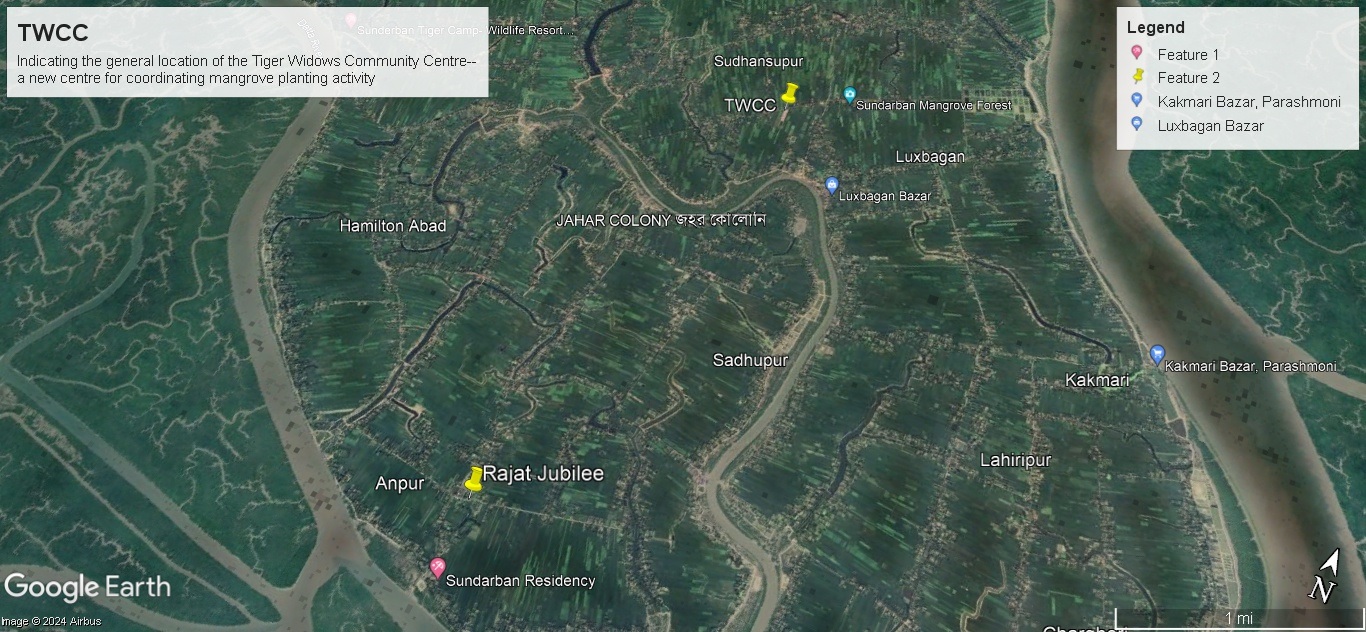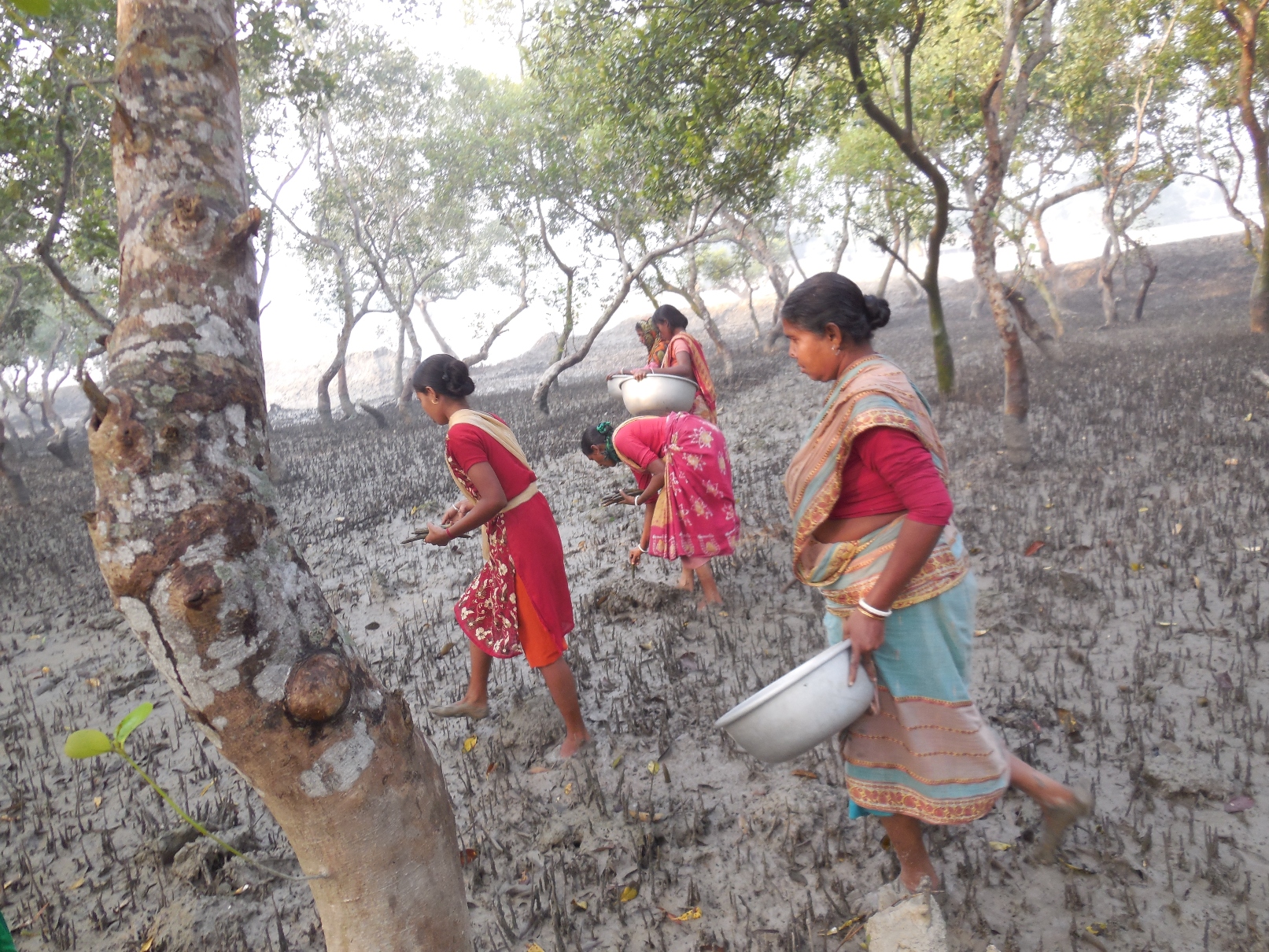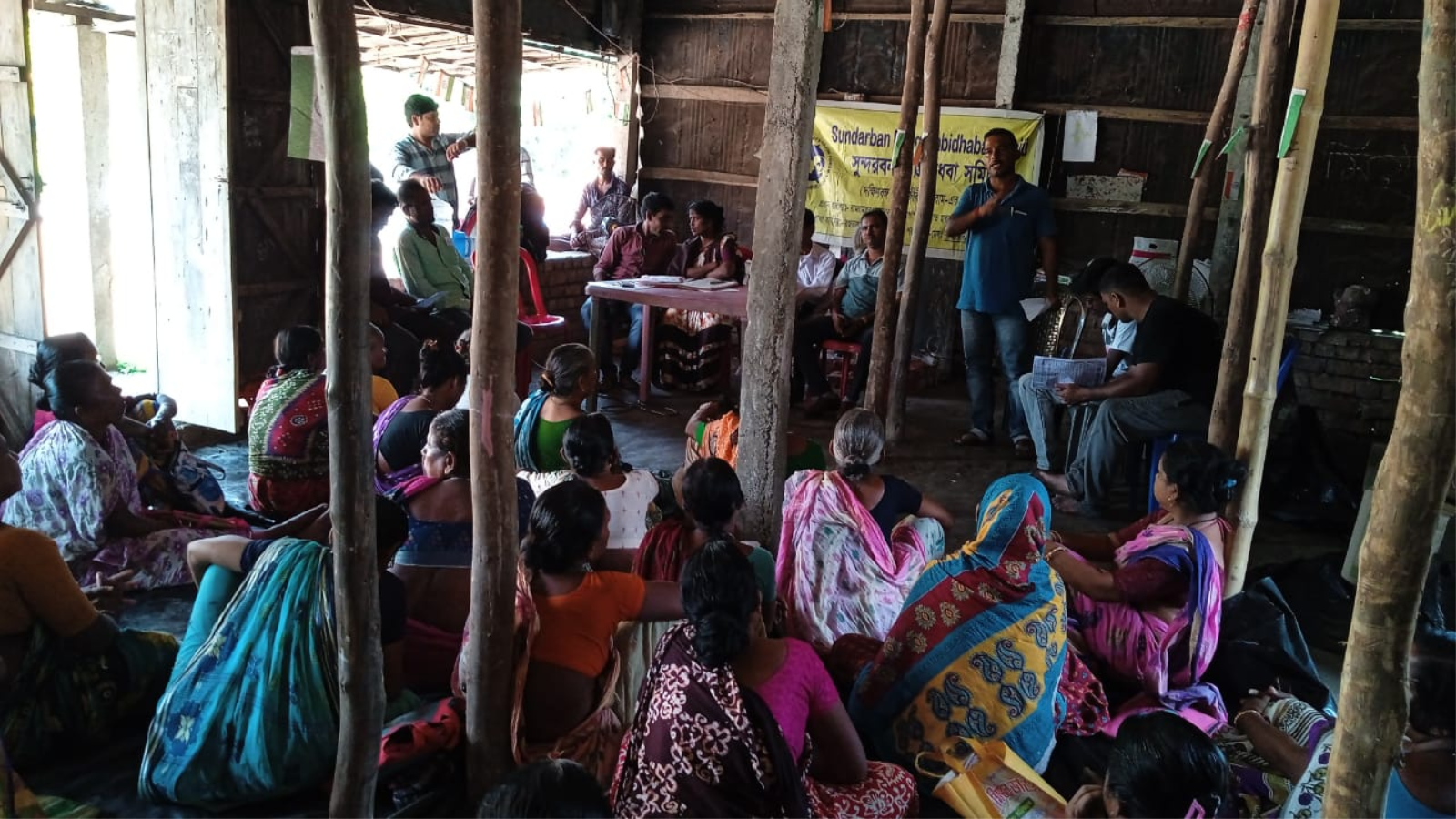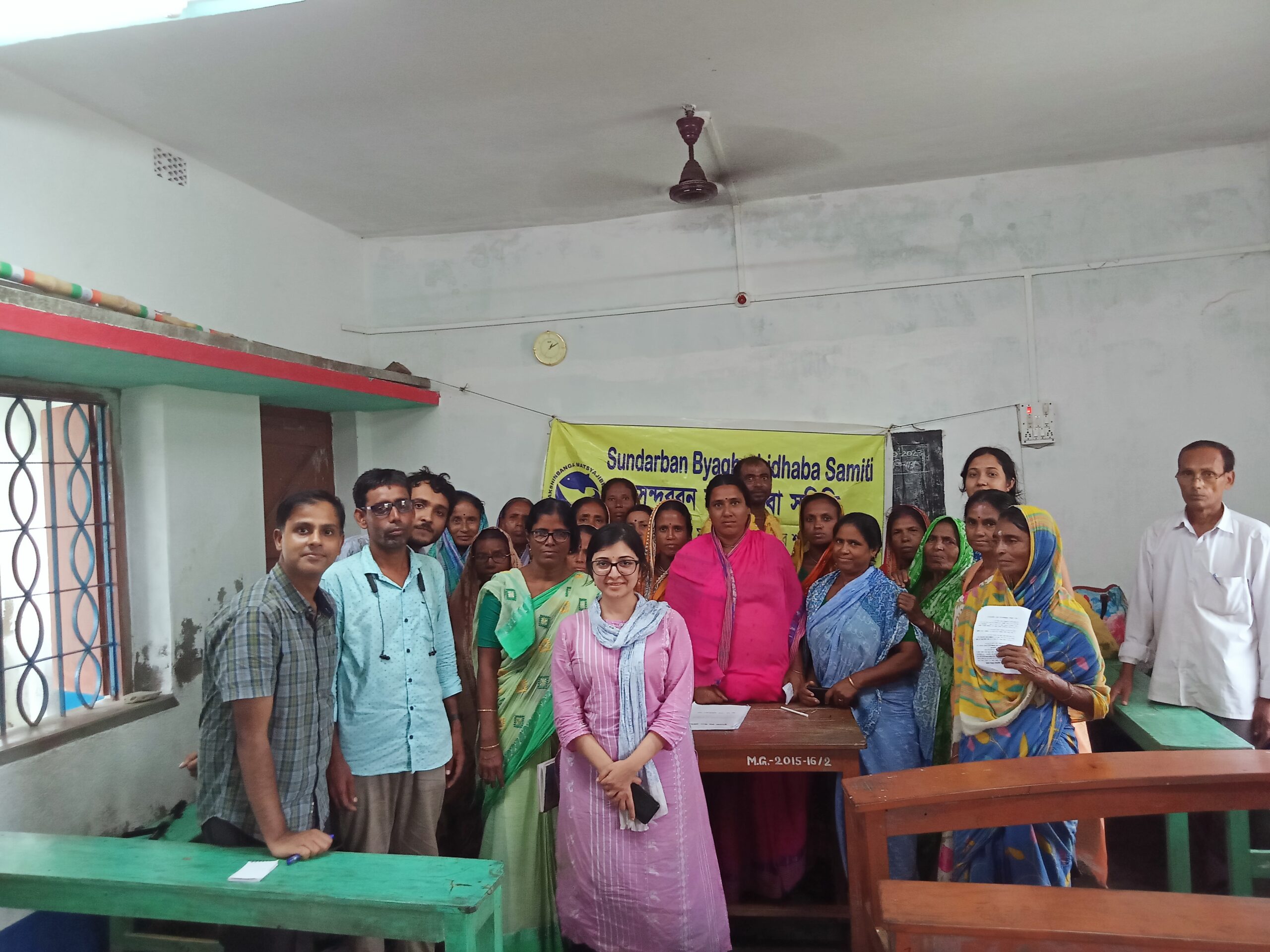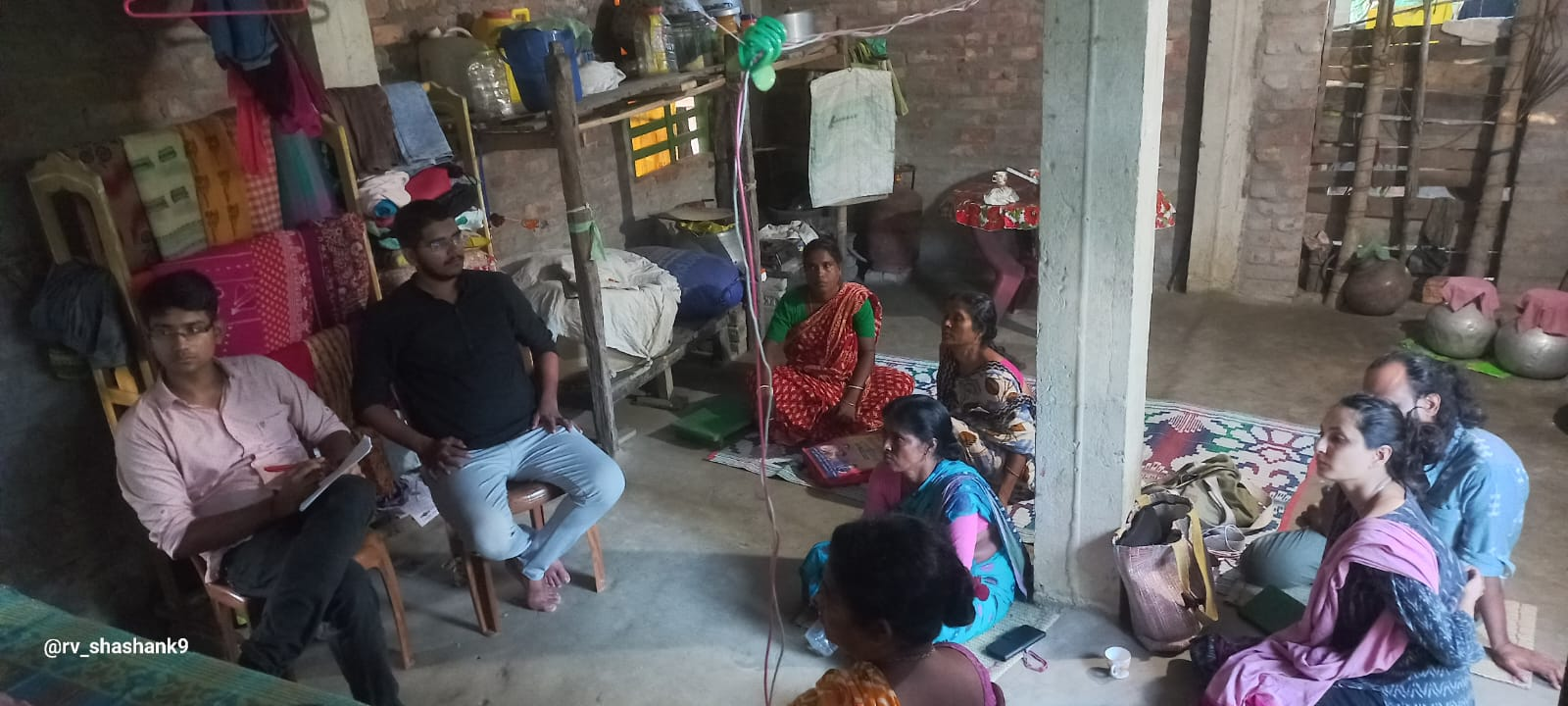Tiger Widows Support Centre
Overview
An initiative by DISHA on the issue of lack of institutional support to the families of victims; who have been killed by the wild animals of Sundarbans forest areas, predominantly by tigers.
- Estimates of local communities indicate more than 3000 victims of tiger attacks who have been fatally injured or in most cases whose bodies could not be recovered.
- Although the families of tiger victims are entitled to compensation and insurance claims but they are mired with corruption and underhanded tactics which hinders them in obtaining their rightful support.
- The communities who are affected by this phenomenon also crippled by the fact that educational progress has not happened and the literacy rate in these areas are abysmal.
- Furthermore there are many bureaucratic hurdles that needs to be crossed and many a times such red tape mechanisms actually deter the eligible persons from obtaining their claim/compensation
- DISHA intervenes in these areas as a facilitator to guide the local people through paralegal support and strengthen the institutions that are obligated to aid the communities as per law.
The Tiger Widows of the Sundarbans
Every year, many fishermen fall victim to tiger attacks in the Sundarbans. There are no official data or documentation on the exact number of such incidents. According to some of the community members we work with, in the Gosaba block alone, more than 100 fishermen fall prey to tiger attacks every year. In Bengali, the bereaved wives of these victims are called Byaghro Bidhoba, which means ‘tiger widow’. Estimates from the local community indicate more than 3000 tiger widows live in the Indian part of the Sundarbans.
The tiger widows of the Sundarbans live in socio-economically vulnerable conditions. They face a host of obstacles in accessing citizen services. While working with the fishing community of the Sundarbans, from DISHA we became aware of their hardship and decided to engage ourselves actively in the betterment of their plights.
Our Initial Work (2013-2016)
Our initial work with the tiger widows of the Sundarbans began in 2013-14. We began to provide training on nature-oriented and climate-resilient livelihood practices and entrepreneurial skill building to twelve tiger widows in the Lahiripur Gram Panchayat of the Gosaba block of the Sundarbans. Along with providing training on nature-oriented and climate-resilient livelihood practices such as agriculture, fishing, beekeeping, livestock rearing and developing entrepreneurship based on the same, we also assisted them in getting them engaged with forestry work such as plantations, nurturing the Sundari mangrove trees and clearing the forest floor, for which we also provided them with training.
We did our initial work through the community-based initiative Sundarban Rural Development Society (the SRDS), which we assisted in establishing at Lahiripur. Its founder was our ground-level activist and organiser Arjun Mondal, a fishworker from this area. He fell victim to a tiger attack in 2017. But the work of the SRDS has since continued, carrying his legacy forward.
Tiger Widows Support Centre: Establishment and Activities (2017-now)
In 2017, we established the Tiger Widows Support Centre (TWSC), also in Lahiripur, Gosaba, South 24 Parganas. This centre aimed to facilitate focused and coordinated activities for empowering tiger widows. The Tiger Widows Committee spearheads the day-to-day activities of the TWSC. The members of this Committee are some tiger widows from the Gosaba block. The TWSC serves as the platform where they can come together to pursue the common cause of their self-empowerment and the betterment of their living conditions. The TWSC also serves as a space where the tiger widows can assemble and hold regular meetings to discuss their concerns and ideas, based on which we can map out their basic needs and plan out the activities required to address those needs.
The TWSC conducts various nature-oriented and livelihood-based skill-building activities and health-support based activities to facilitate the economic empowerment and self-sufficiency of the Tiger Widows of the Sundarbans.
Other than serving as a centre for training and facilitation of livelihood activities such as nature-oriented farming, fishing and poultry and livestock rearing, the TWSC also serves as a common platform where the vulnerable and marginalised tiger widows of the Sundarbans can come together and voice their concerns so that we can identify their socio-economic pressure-points and work together with them to address the same through intensive dialogues, discussions and awareness-oriented programs.
Close coordination and active engagement with the tiger widows of the Gosaba block through the TWSC has also made us aware of the several issues that plague their daily lives that require urgent attention. We communicate and coordinate with the relevant government authorities to ensure the tiger widows get their due compensation, insurance claims and other citizen’s services. One of our key objectives behind establishing and running the TWSC is facilitating access to facilities, amenities and services essential for a decent quality of life for the tiger widows of the Sundarban forests.
- Tiger Widows Support Centre


